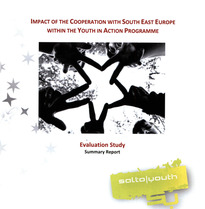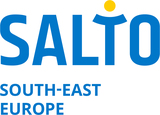Publications and resources
-
"Cherry on the cake" -Advice for quality planning of Youth Exchanges
How can a Youth Exchange developed within the Erasmus+ Programme in the field of youth be used as a complementary element of youth work? This handbook explores all phases of Youth Exchanges from exploring the first ideas to the follow up and provides insights on what young people can learn and how group leaders can facilitate the learning process.
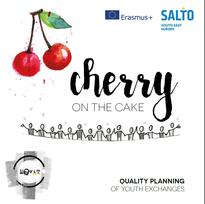
-
Implementation of the Erasmus+: Youth in Action Programme in the Programme's Partner Countries in the Western Balkans
As preparations for the new generation of EU youth programmes are ongoing, it is important to see how the current Programmes have been implemented and what we can learn for the future.
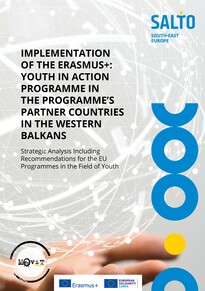
-
Guidelines on residence permits procedures for volunteers being hosted in the countries of Western Balkans
This publication is intended for all organizations from the Western Balkans, which are hosting volunteers from EU countries within the framework of the programmes Erasmus+:Youth in Action and European Solidarity Corps, and are as such required to help them through the process of obtaining the residence permits for their stay during their volunteering period.
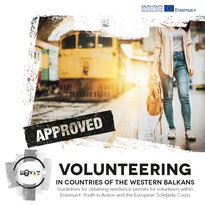
-
Learning support within volunteering projects in Slovenia and the Western Balkans: practices, challenges and needs for development
The main aim of the survey was to explore the existing practices and identify the needs of the organizations to support the volunteer’s learning in the most effective way. The results of the survey are providing to MOVIT and SALTO SEE RC a basis for further investment in capacity building in this area.
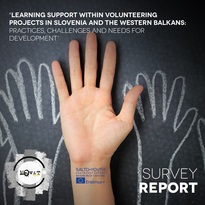
-
Youth Work and Youth Policies in the Western Balkans in the Context of the Berlin Process
In the context of the Second Europe-Western Balkans Youth Meeting, held in May 2018 in Podgorica, SALTO SEE published some studies and articles that looked into the current state of youth work and youth policy in and with the Western Balkans.
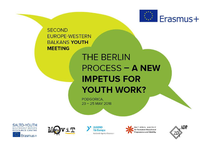
-
Cooperation with Neighbouring Partner Countries under Erasmus+: Youth in Action, Statistical Analysis
The statistics have been collected in October 2018 to give an overview over the development of the cooperation with the Neighbouring Partner regions (EECA & Russia, EuroMed, Western Balkans) in the Erasmus+ programme, youth field, during the period 2014 – 2017.The data aims to show developments and trends and, in addition, to provide a comparative view of the cooperation with the different regions.
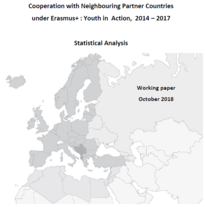
-
Report for the forum "Raise your voice for tomorrow's Europe"
The forum, which tool place in Ljubljana in November 2017, aimed at promoting the European dimension in education for democratic citizenship with young people, and contributing to the recognition of European citizenship. The final report provides an overview on the forum as well as the interesting debates held on the topics of young people, citizenship and Europe today!

-
100 Years of Transnational Volunteering
The poster illustrates milestones in the development of international and cross-boarder volunteering. It was produced in the context of the European Volunteering Forum in November 2016.
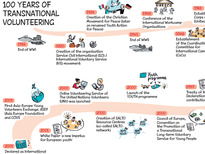
-
Hopscotch to Quality in EVS -Handbook for EVS Promoters
A practical handbook for enhancing quality in European Voluntary Service (EVS) projects. New edition published in 2016. (Please note that the EVS is no longer part of the Erasmus+: Youth in Action Programme. For volunteering opportunities, please consult our relevant page for the European Solidarity Corps.)
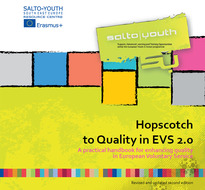
-
Information on SALTO-YOUTH network
Would you like to know more about SALTO-YOUTH? In 2015 the network celebrated its 15th birthday. The publication "Looking forward, looking back: 15 years of Support, Advanced Learning and Training Opportunities" covers a range of expertise the SALTO Network offers to young people and youth workers all around Europe. The articles prepared by the staff of all eight Resource Centres explore the past successes and challenges still to be overcome in the field of youth in Europe.
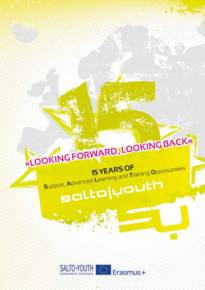
-
EVS Competences for Employability
How do competences that volunteers gain through their European Voluntary Service (EVS) within the Youth in Action Programme (2007 - 2013) relate to employability? How are they perceived by EVS organisations, volunteers and employers? Here you can find the outcomes of a two year project on this topic.
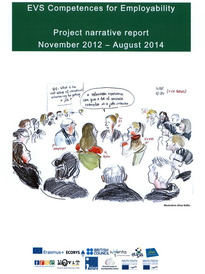
-
Symposium on Recognition of Youth Work and Non-formal Learning in South East Europe
The Symposium on Recognition of Youth Work and Non-formal Learning in South East Europe, or the "Tirana symposium" continued the reflection, exchange of views and development of ideas on recognition of youth work and non-formal learning, this time focusing on the political developments in the countries of South East Europe. Describing the reflections and outcomes of the symposium, this report can serve as an inspiring tool for further work on this complex issue.
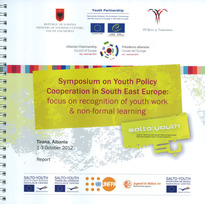
-
Unlocking Doors to Recognition -Setting up strategies for better recognition of youth work and non-formal education / learning in your context
Handbook with practical examples on how to set up strategies for better recognition of youth work and non-formal education in different contexts.
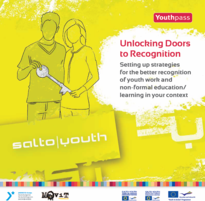
-
Impact of the Cooperation with South East Europe within the Youth in Action Programme
What has been the impact of the projects and partnerships developed with partners from the South East Europe within the Youth in Action programme (2007 - 2013)? This study looks at the impact on people, organisations, local communities, youth work and policy development.
